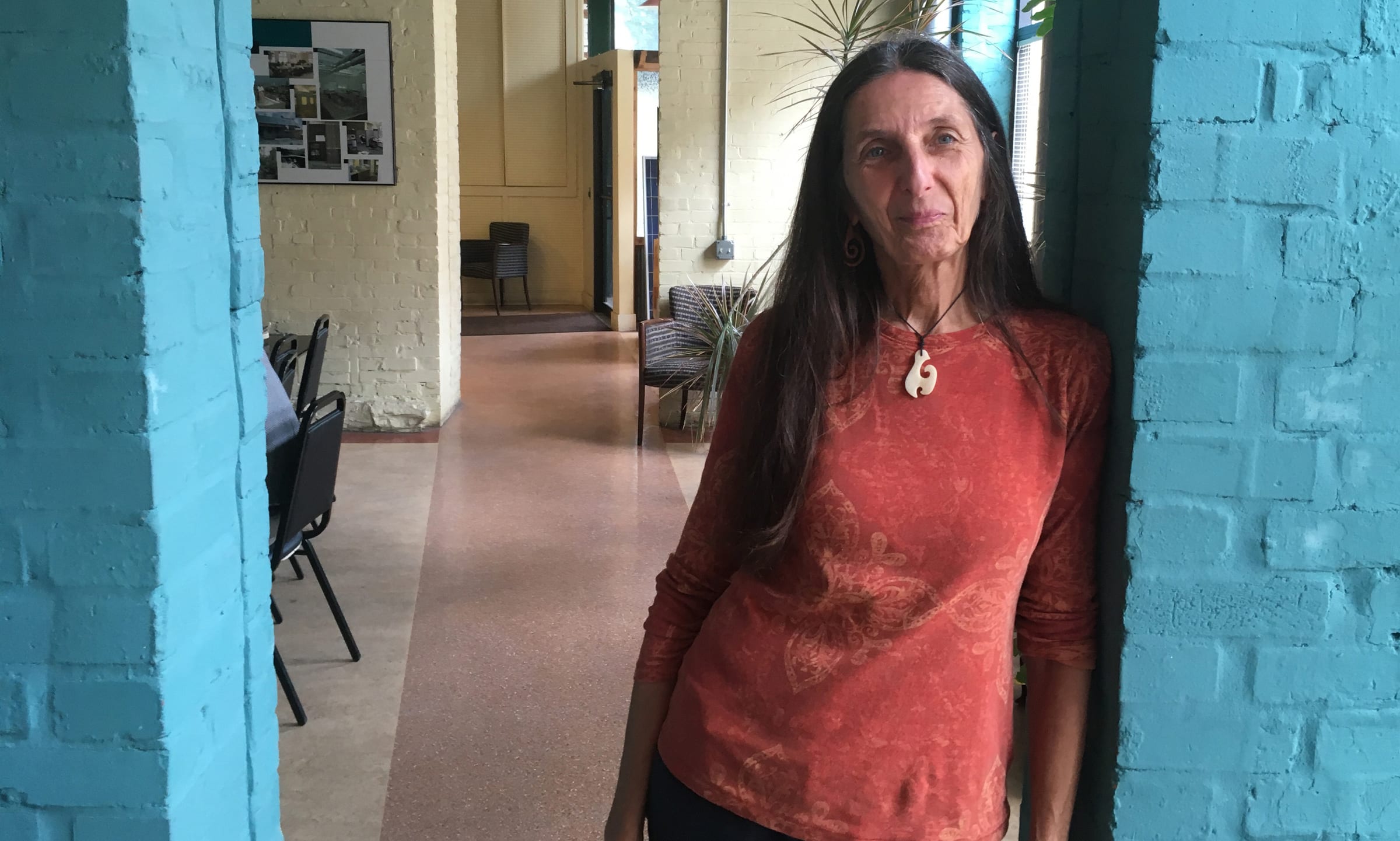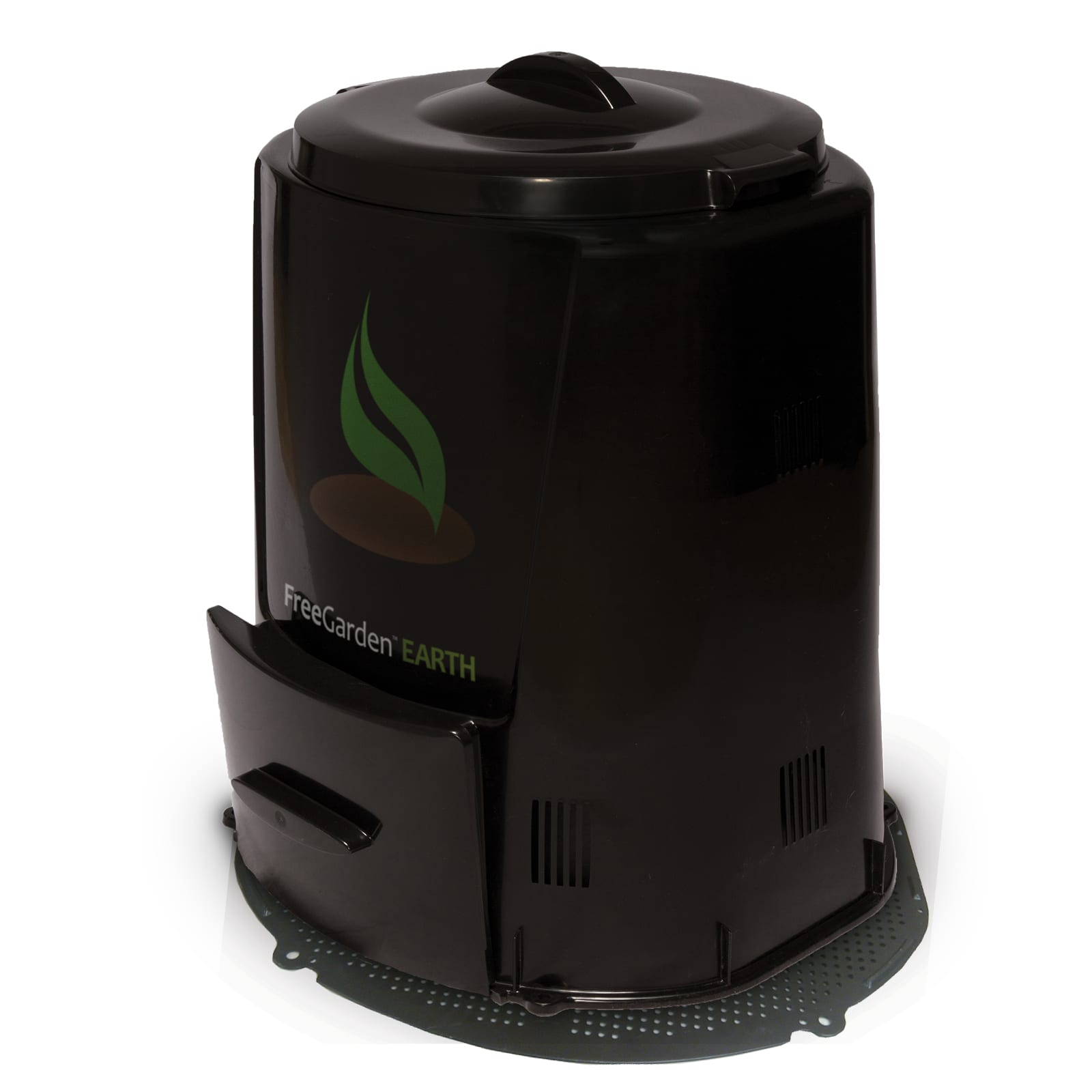
Gardening Green with Doug: Composting
by Doug Oster
April 22, 2020
I’ve been writing a weekly garden column for a long time and it’s thrilling to continue with a fresh perspective here at The Green Voice. It’s fitting to begin this new venture by talking about composting, as compost is the building block for all gardens. Even though I’ve been making compost in the backyard for over 30 years, the definitive source for the subject is Nancy Martin, an environmental educator for the Pennsylvania Resources Council, the state’s oldest grassroots environmental organization. Martin teaches composting, vermicomposting (with worms) and other workshops at PRC.
She’s composted for decades and is so passionate about the practice, Martin will save fresh material for her own home bin when encountering people who don’t compost. “If I’m visiting a friend, I take home my food scraps, she says with a laugh, because I feel so guilty about sending them to the landfill.”
Composting is one of the best ways to recycle as the gardener reaps the benefits by harvesting the nutrient rich soil amendment.
“One thing is simply waste reduction,” she says of why she composts, as Pennsylvania imports more trash than any other state. “I like to know that I’m returning organic matter back to the soil,” she says. “Garden beds, our plants love compost for many reasons,” added Martin. She also worries about climate change as methane gas is released from landfills.
Martin explains that composting is odor free, easy to do and will reduce greatly what’s sent to the curb. “A foul odor would tell you something is wrong in the bin. I’ve never, in all these years had a bad odor coming from my compost bin,” she says.
One of the ingredients for any bin includes food scraps along with plant material from the garden. “The main things from the kitchen that should not be put in a compost bin in an urban, suburban areas are meat and dairy,” says Martin, as they could attract rodents. That means try to keep those things along with grease, butter and creamy dairy products out of the pile. Just about everything else is fair game. Anything that once was living will eventually become compost. Vegetable and fruit peelings, unbleached paper towels, egg shells, coffee grounds and much more can be saved for the compost bin along with any plants from the garden which weren’t diseased. It is a change in the way a household will deal with this material though, it’s called splitting the waste stream, although composters hate calling the fresh material waste. Instead of all these things being thrown in the trash, the compostables are put in one container, the trash in another. The compost container is taken outside to the bin, the trash is dealt with the same as always.

There are lots of way to compost kitchen and garden waste, she says. One classic method uses three bins. The first bin is filled with fresh material, when full, the second one gets the material and usually by the time the second is filled the first is ready to harvest. It takes about year if left passively to compost. The process can be quicker if the bin is turned occasionally. The third bin is filled as the second is converting to compost.
Whenever Martin adds something from the kitchen, which is called the green material, she’ll add something carbon rich, called the brown material. Shredded leaves or straw are the most common browns added. Having either next to the compost bin, makes it easy to put on top of the green material and over time creates layers and better compost.
There are also closed systems, like the FreeGarden EARTH Compost Bin. It’s a rodent proof container, which is easy to set up for gardeners new to composting. Participants of Martin’s PRC backyard composting workshops get that bin after completing the course. One trick Martin uses to keep a bin like that completely rodent proof is to first lay down hardware cloth, it’s a thick mesh screen available at any hardware store.
There are also rotating bins, which can make compost in as little as 45 days.
Finished compost has some amazing properties. Even though it drains well, it also holds moisture for plants and can’t burn them either while helping to feed them. Compost is a natural fungicide. It attracts beneficials, everything from worms to microbes.
Martin also teaches a vermicomposting workshop, which is an indoor system using worms to produce compost. The resulting compost is packed with 30 times more nutrients for plants than what we make in our backyards. The worms are in a bin, can never escape and are fed much of the same material which is collected for the outdoor bin. It’s another odor free way to make compost, only in this case it’s indoors. Martin adds that gardeners will rarely even see the worms as they prefer darkness and are often at the bottom of the bin. “They are harmless,” she says of the worms.
Compost added to the garden is a great thing for plants, but there are lots of reasons to make what gardeners call black gold. “You always feel good when you’re doing something that’s good for you, the Earth, plants, air and the water,” Martin remarks. “It makes a lot of people happy to compost. It’s a win, win, win situation.”
Martin’s composting, vermicomposting and rain barrel (watershed awareness) workshops are quickly being converted to webinars and will be available soon. For more information go to PRC.org.

Great article!
Thanks, Glenda! Glad you enjoyed the article.
Thanks Glenda, I gave you some props below!
Good to see you here Doug!
Great to be here, Inga! Thanks for your continued support. – Doug
Thanks for your continued support Inga, much appreciated.
Any suggestions on vermin? I live dead center in an urban environment and successfully composted for several years in a container. However it attracted a multitude of slugs. On hot humid nights the outside of the container was covered with them. Also, mice liked to burrow underneath.
Steve, the main thing to stop rodents is by not including meat, oils or creamy dairy. A closed system, like the FreeGarden Earth bin with hardware cloth used as a barrier on the bottom will do the trick to keep them out of urban bins. For the slugs, not much you can do about them during rainy years. They are a good thing for the pile anyway. If you can’t stand them, there’s an organic product called Sluggo which will take care of them.
Hope that helps,
Thanks for your kind words Glenda and Inga, thanks for your support.
Steve, the main thing to stop rodents is by not including meat, oils or creamy dairy. A closed system, like the FreeGarden Earth bin with hardware cloth used as a barrier on the bottom will do the trick to keep them out of urban bins. For the slugs, not much you can do about them during rainy years. They are a good thing for the pile anyway. If you can’t stand them, there’s an organic product called Sluggo which will take care of them.
Hope that helps,
Doug
I did a basic compost pile for the first time this last year with last years garden debris and I think it will be successful. Looking forward to getting into more of a habit with it.